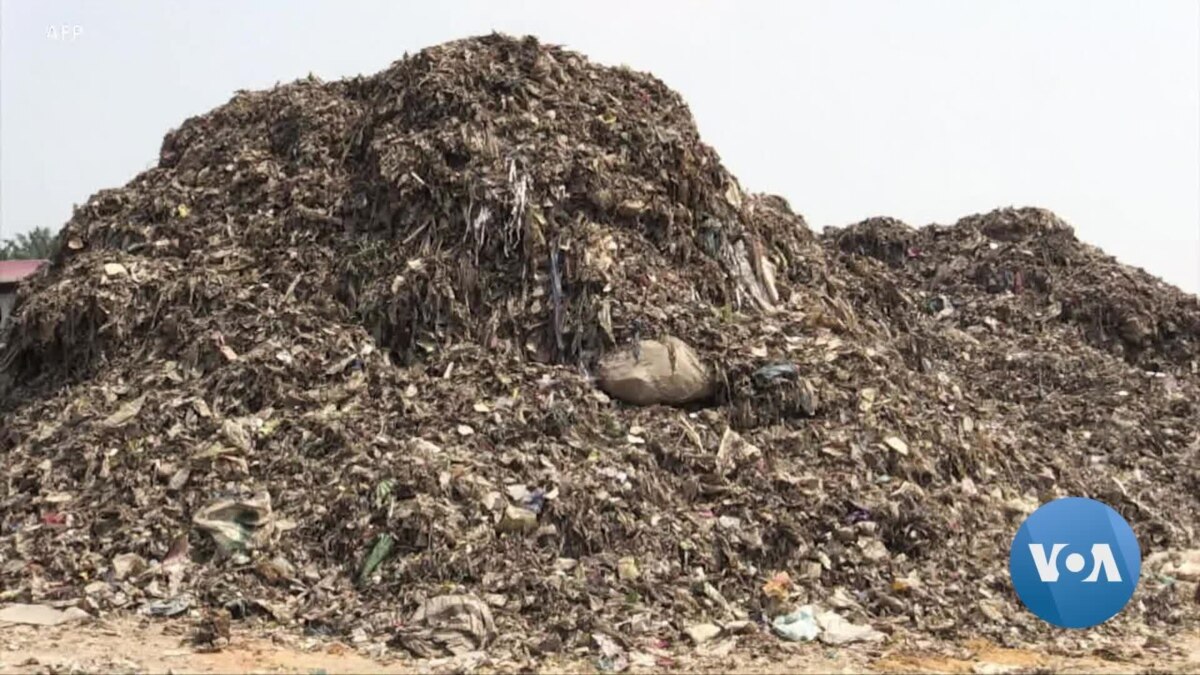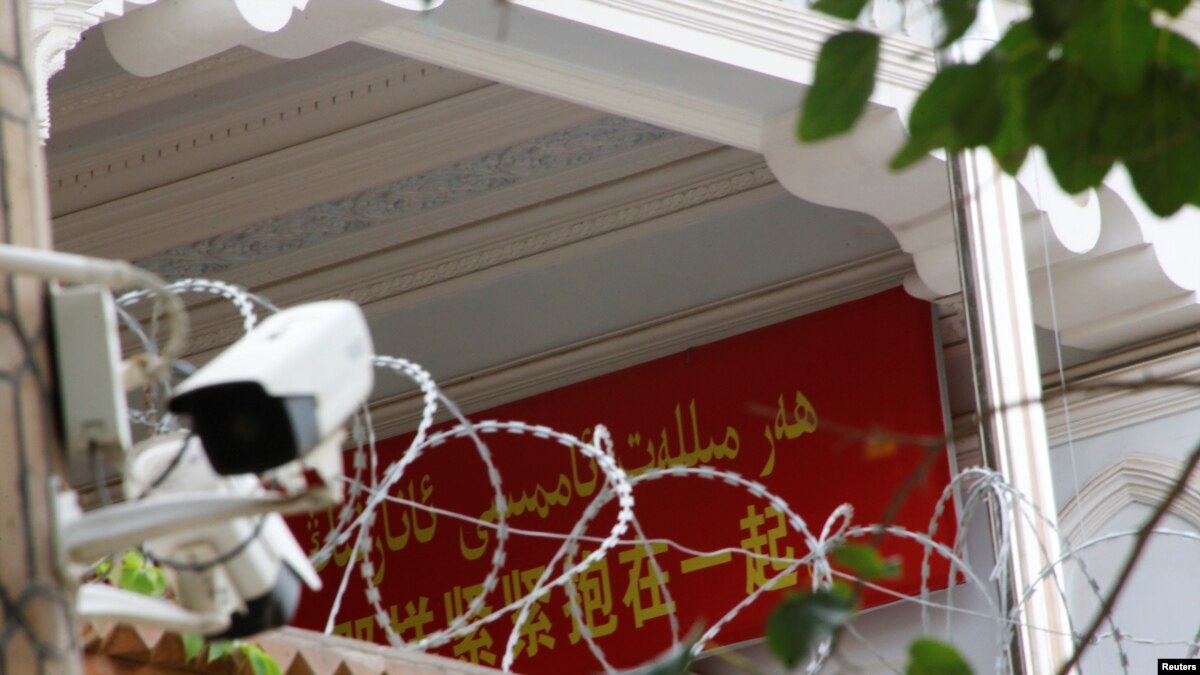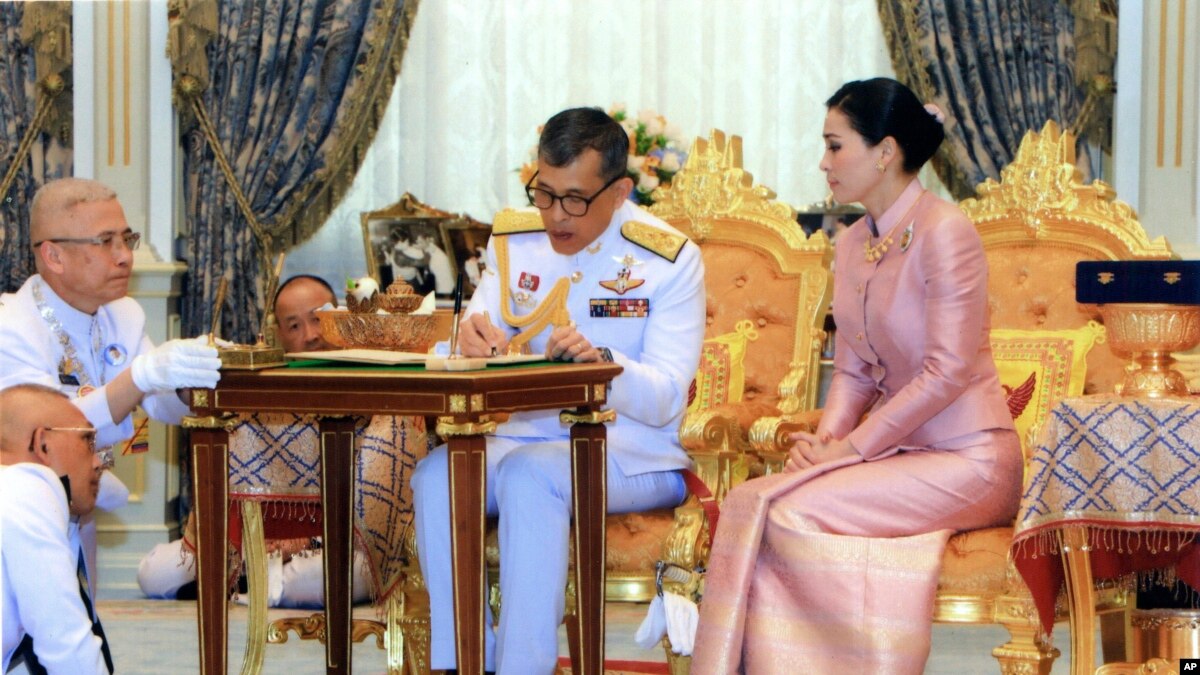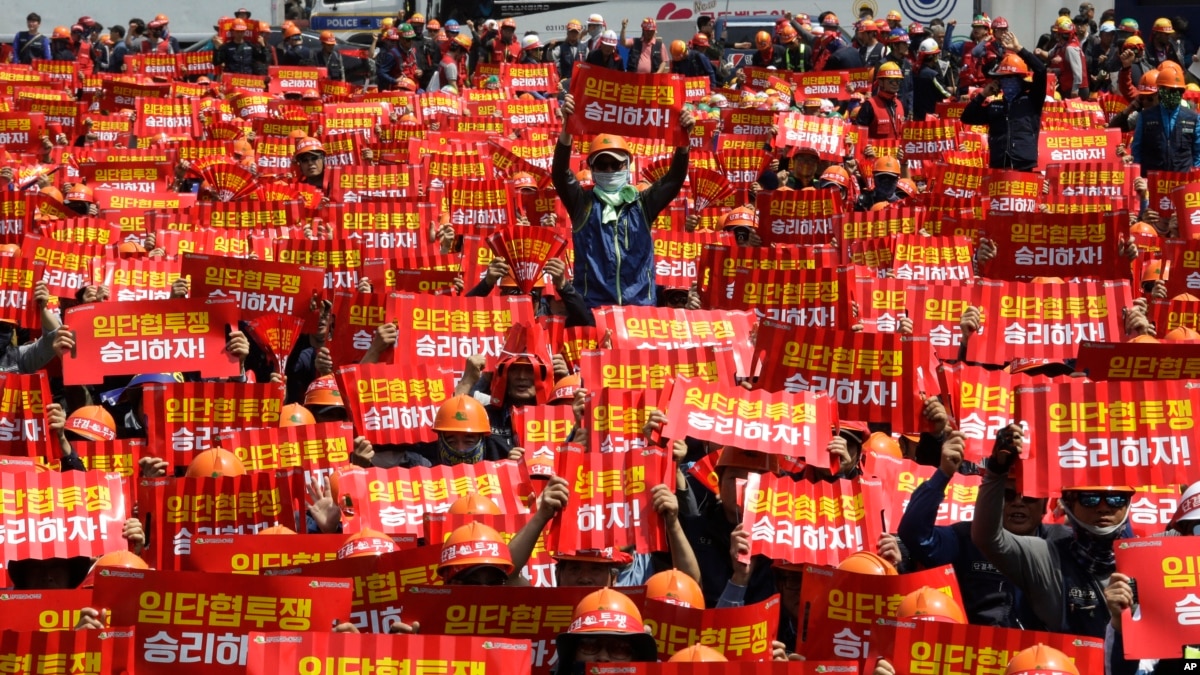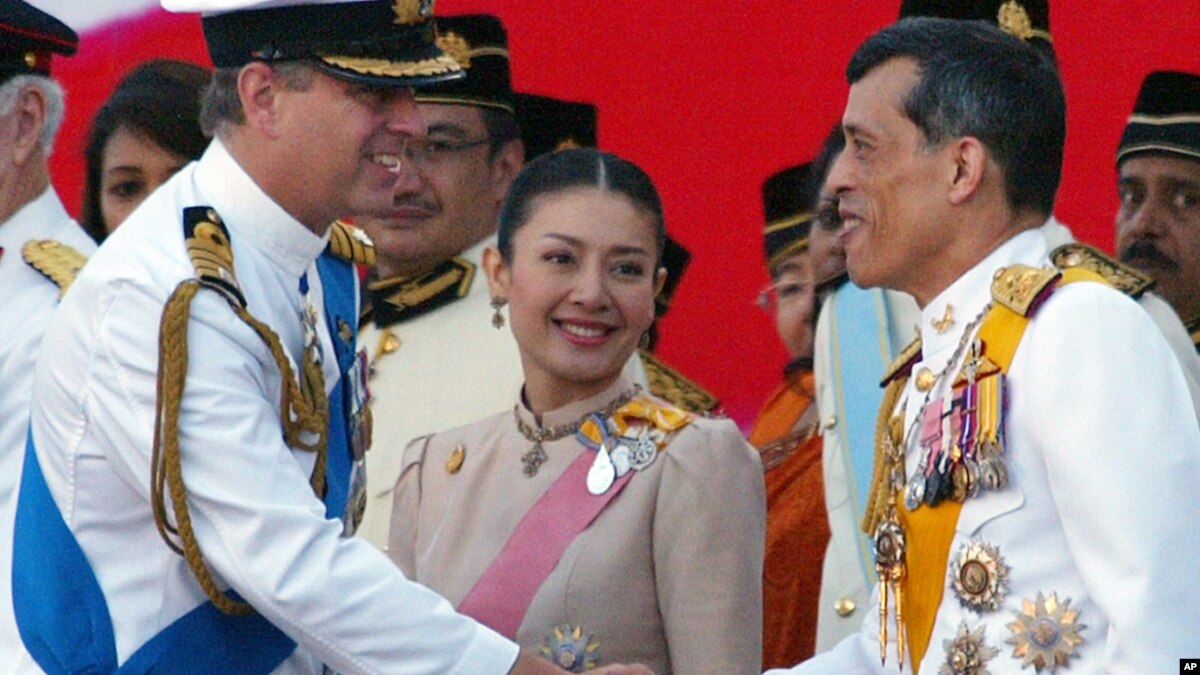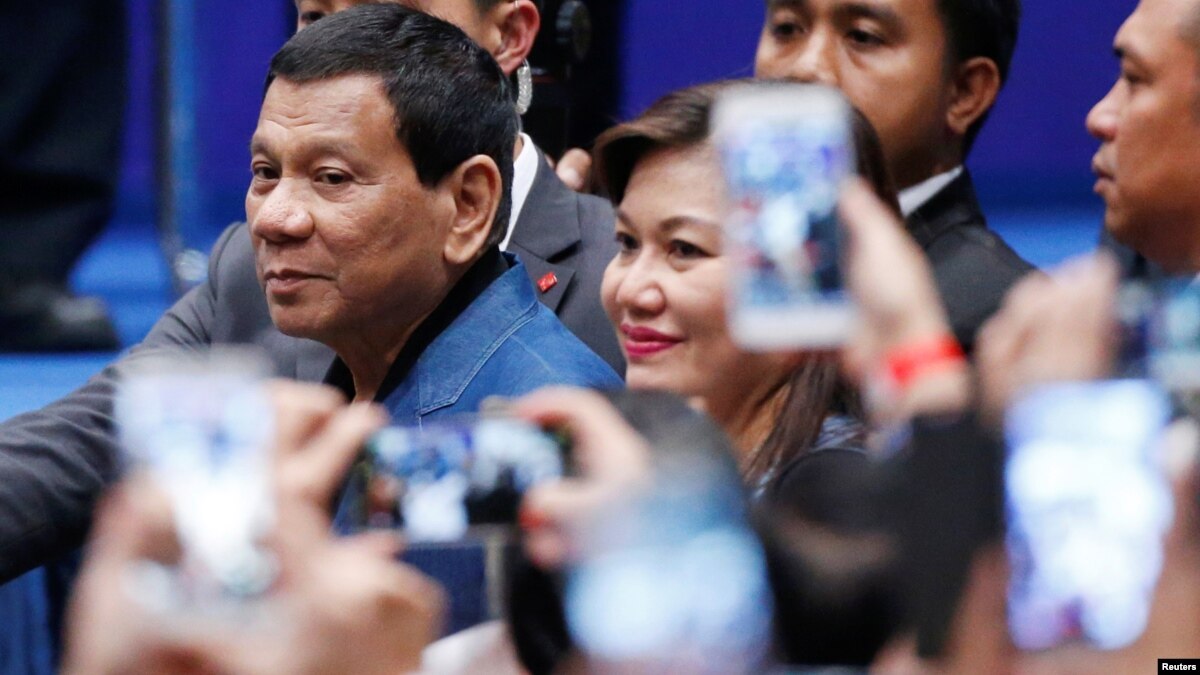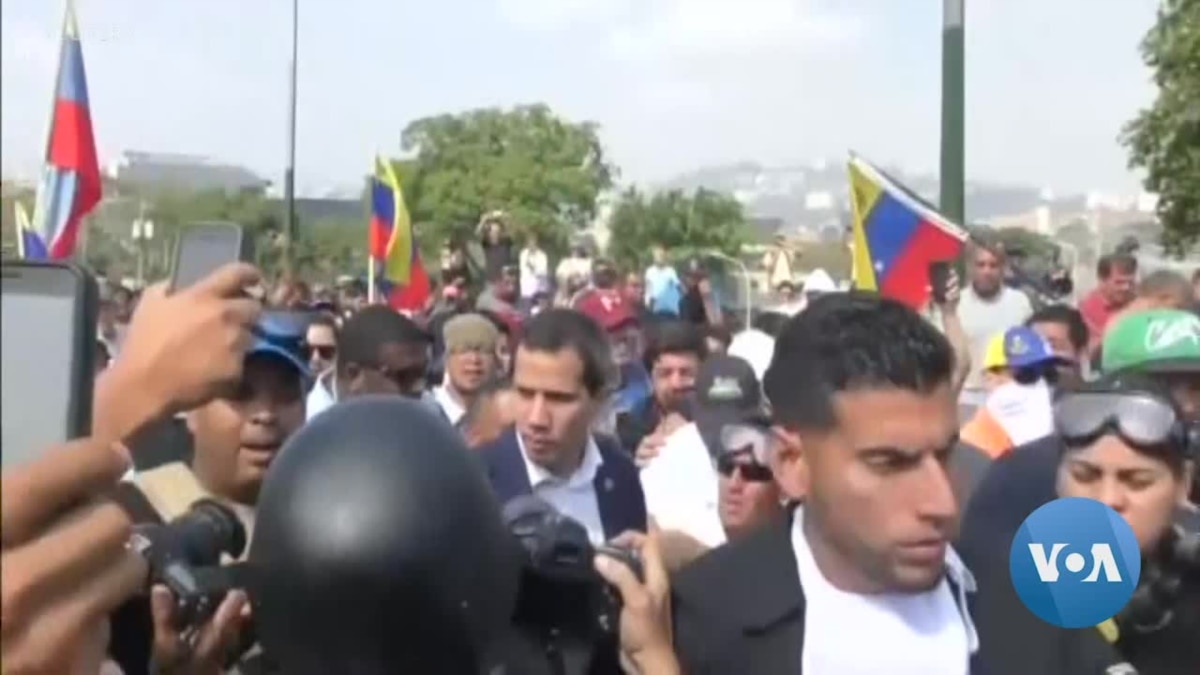
President Donald Trump is increasingly reliant upon economic sanctions to achieve his foreign policy goals, despite a repeated emphasis that the use of military force remains a viable option. However, these coercive measures, analysts say, have not produced their intended results, and at times have put the United States at odds with allies.
Venezuela
In the case of Venezuela, the Trump sanctions that include the seizure of Venezuela’s oil assets in the United States, along with joining more than 50 other countries in recognizing Juan Guaido, the head of the National Assembly, as the interim president, have energized the opposition. Despite the economic pain caused by the sanctions, the massive protests in the country, and reports of growing mid-level military support for the opposition, socialist leader Nicolas Maduro has continued to hold on to power through increasing political repression.
Short of using military force that could entangle the United States in a protracted civil war, there are few other measures the Trump administration can take to force democratic change in Venezuela.
“Because the costs are limited to us. It also means the benefits will likely be limited. We could accept more costs and achieve more benefits if we were for example, to invade these countries, change their governments, force them to adopt policies we want,” said Richard Weitz, a political-military analysis at Hudson Institute in Washington, DC.
Iran
Trump has more aggressively imposed unilateral sanctions than past presidents against countries like Venezuela, Iran, Cuba and North Korea, and in threatening to target more third party countries that violate U.S. restrictions.
“He's following the thesis that, you know, began to be articulated in the Congress and in the 90s, which is you should force other countries to make a choice. They can do business with us, or they can do business with Iran, or Cuba, North Korea,” said William Reinsch, an international business analyst at the Center for Strategic and International Studies in Washington, DC.
After withdrawing from the Iranian nuclear deal, negotiated by the previous administration of President Barack Obama, Trump's security team recently warned third party countries, including allies South Korea and Japan, of impending sanctions if they continue to buy Iranian oil.
The unilateral sanctions have worked to some degree to force reluctant allies to go along with increasing economic pressure on the Iranian Islamic Republic to end its nuclear ambitions and support of armed militant groups in the Middle East.
“They've reassured allies in the Middle East that we're taking a strong stand in Iran, they have caused European countries to disengage from the Iranian economy, even as their governments, although they are clearly opposed to his policies, they haven't taken strong measures to confront the U.S. on that,” said Weitz.
Cuba
Trump on Wednesday threatened an economic embargo of Cuba for allegedly supporting Maduro in Venezuela with 20,000 troops. The United States also recently announced it would enforce sanctions against Cuba permitting U.S. businesses that had property seized by the communist government of Fidel Castro 60 years ago, to sue international companies, some in Europe and Canada, that have since taken over these buildings.
These restrictions on Cuba and Iran not only potentially target allies that violate U.S. policy, they could also hurt American businesses by excluding them from these markets.
“The worst case for American companies is if they're out, and the German, French, British competitors are in, because then they're losing market share, and they're losing market share long term, because they're not going to get that back when the political situation changes,” said Reinsch.
North Korea
On North Korea the Trump administration led efforts for increased United Nations sanctions in 2017 that ban most of that country’s exports, along with unilateral sanctions on companies in China and Russia for supporting the North’s weapons program. These restrictions likely contributed to Pyongyang suspending ballistic missile and nuclear tests and agreeing to engage in denuclearization talks. However, the talks remain deadlocked over Washington’s demand for Pyongyang’s near complete disarmament prior to sanctions relief.
While sanctions can impose increased economic costs on an adversary country, analysts are skeptical they can force sweeping change, and say that over time these measures can become less effective as targeted countries step up evasion efforts.
Read More Trump’s Sanctions Wage Economic War : http://bit.ly/2Lhz0wT